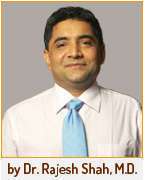
Turner Syndrome Treatment
Definition
Turner Syndrome (also known as Gonadal dysgenesis) is a chromosomal disorder in females since birth characterized by the absence or defect of one X chromosome.
Causes:
The exact cause of Turner syndrome is still not clear. Turner Syndrome occurs when the second sex chromosome is either incomplete or missing completely.
Most of us are born with two sex chromosomes. Females inherit one X chromosome from each parent. When a female has Turner syndrome one X chromosome copy is either absent or significantly altered.
Symptoms:
Common symptoms of Turner Syndrome are:
- Short stature
- Web neck
- Swollen hands and feet
- Broad and flat chest with widely spaced nipples
- Under developed breast
- Low hair lines
- Prominent ear lobes
- Drooping eyelids
- Dry eyes
- Infertility
- Vaginal dryness, may lead to painful intercourse
- Absent menstruation
- Cubitus valgus (Arms that turn out slightly at the elbow)
- Heart murmur resulting from narrowing of aorta
- Hypertension
- Underactive thyroid
- Obesity
- Recurrent ear infection
- Osteoporosis
- Scoliosis (curving of the spine from side to side)
- Horseshoe kidney
- Small fingernails
Diagnosis and Investigations:
- Amniocentesis: A prenatal test to detect any chromosomal abnormalities.
- Karyotype: Blood test to determine any chromosomal abnormalities.
- Ultrasonography of abdomen and pelvis: It is done for the detection of ovarian tissue.
- Echocardiogram: It is done to examine cardiovascular malformations.
- MRI of the chest:
- Blood hormone levels: Luteinizing hormone (LH), Follicle stimulating hormone (FSH) and Growth hormone (GH).
Treatment:
There is no cure for Turner Syndrome. Scientist not yet has found a cure for Turner Syndrome. However, there are some treatments, which can help in minimizing the symptoms.
- Growth hormone replacement: It is given in early childhood to prevent short stature later in life. A daily injection of growth hormone may help in increasing height by few inches.
- Estrogen replacement therapy: It is given at the age of 11 years to 13 years. It helps in the development of secondary sexual characters. It also helps in preventing osteoporosis.
Homeopathic approach in Turner Syndrome:
We, at Life Force, have not enough experience about Turner Syndrome. We have registered one case of Turner Syndrome in 2011. It is difficult to opine about the role of homeopathy at this stage. Homeopathic treatment may be suggested in selected cases, depending on the presentation of symptoms.
Written & Approved by-
Dr. Rajesh Shah
M.D. (Hom.)